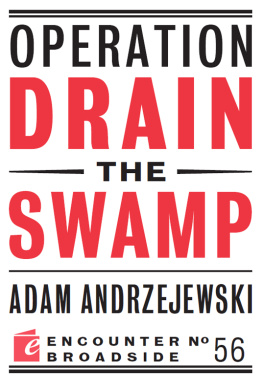I NTRODUCTION
M ANY A MERICANS LIKELY know the Reverend Minister Louis Farrakhan founded the Nation of Islam. But do they know hes also a farmer? Farrakhan received more than $317,000 in federal farm subsidies and commodities loans at his home address in Hyde Park, Chicago during a sixteen-year period.
The subsidies were granted to a charity called the Three Year Economic Saving Program, which then, allegedly, distributed the funds to a 1,500-acre farm based in Georgia called Muhammad Farms. The trouble is, the Three Year Economic Saving Program might not be a real charity in 2014, the Cincinnati office of the Internal Revenue Service didnt have a record of it. The Illinois Secretary of State listed the Saving Program as not in good standing. Whats more, the Illinois Attorney Generals office, which oversees the states 501(c)(3) charities, in 2014, had no record of a charity registered with that name. And yet government checks flowed to Farrakhan, not in Georgia, of course, but at his home address in Chicago.
This is but one sadly typical illustration of the reach and perfidy of what has become popularly known as the swamp.
The swamp is not just how we refer to Washington when the party we despise controls the levers of government. Nor is it merely a snarky designation for that generally disliked Mid-Atlantic wasteland known as the D.C. Beltway zone (despite the myth, Washington was not founded atop a drained swamp).
In America today, the swamp is a real thing: a permanent government within our government that will outlast this administration and the next one and the one after that. It has a massive architecture that can be measured. It is composed of tens of thousands of individuals many of whom operate well outside the confines of Washington, D.C. And it is not just government employees. It is also the thousands of lobbyists working to keep pet projects funded, the thousands of rent-seeking private citizens who practice their own form of income redistribution by gobbling up tax dollars through federal subsidies, and the thousands of private-sector employees hired as independent contractors to do work the American people never asked for.
The administrative states costly interventions into the daily lives of American citizens far outweigh its purported benefits.
The larger the swamp grows, the more it entangles and imperils our everyday lives.
Americans are rightly suspicious. They know unfairness when they see it. But few Americans are aware just how far the tentacles of the swamp have spread, and just how tight a grip the swamp has on their everyday lives. While the idea of draining the swamp may seem to be a new one, it has a storied American history which makes it all the more shocking that it has never been accomplished.
Indeed, Americans have loathed the swamp since long before President Donald Trump targeted it in his successful 2016 campaign. In fact, the slogan drain the swamp has a long and, surprisingly, bipartisan history. In 1983, Ronald Reagan pledged to drain the swamp, saying to constituents: sometimes it is difficult to remember that you didnt send us to Washington to feed the alligators, you sent us to drain the swamp. Unfortunately, the alligators were still being fed by the time Senate Minority Leader Nancy Pelosi made the same promise in 2007, pledging to break the link between lobbyists and legislation.
But just what is the swamp, and where did it come from? In technical terms, the swamp is perhaps best described as Americas administrative state: a broad, unelected federal bureaucracy conceived by Progressives and willed into existence with the New Deal reforms. The administrative state technically falls under the purview of the executive branch, but todays administrative agencies function autonomously with little to no oversight or accountability to the presidency or the American people.
The Left views the administrative state as a professional technocrat class that competently manages various federal programs for the benefit of the public. In the Lefts view, the people, unable to help themselves, must be constantly taken care of by the federal government.
The Right argues that our elected officials have delegated far too much power to these agencies, that they operate with less-than-scientific efficiency, and that the administrative states costly interventions into the daily lives of American citizens far outweigh its purported benefits.
OpenTheBooks fact checked the promises from both sides and conducted a full-scale investigation to reveal the size, scope, and effectiveness of this federal bureaucracy. We audited all publicly disclosed government salaries and bonuses for the 2016 fiscal year. We learned what exactly it is they do, where they work, and how much they make.
We literally mapped the swamp. And the results were deeply alarming.
The current state of Americas bureaucracy is unconscionably expensive. In 2016, there were 1.97 million civil service employees in the executive agencies (plus the U.S. Post Office), at a total cash cost of $136 billion. Federal bureaucrats are paid 1.1 million dollars every minute, $65.6 million every hour, and over half a billion dollars per day and thats just cash compensation. This, by the way, is not counting the Department of Defense and our active military one of the few expenditures that most Americans actually agree is essential to the security and wellbeing of our nation.
Many American workers spend their entire careers trying to earn six figures indeed only 8 percent of Americans make $100,000 a year. In the swamp, however, six figures can be the norm. We found that $100,000 represents a kind of minimum wage for federal employees. There are 78 agencies where the average salary is $100,000 or more. Around 25 percent of federal employees make six figures three times the percentage of private-sector workers. And the number of highly compensated federal employees is only growing. Between fiscal years 2010 and 2016, the number of federal employees making $200,000 or more increased by 165 percent. Our analysis showed that more than 406,000 federal employees earned six-figure incomes in 2016, while 30,000 rank-and-file federal employees received more than $190,823, out-earning each of the 50 state governors.
Federal bureaucrats are paid 1.1 million dollars every minute, $65.6 million every hour, and over half a billion dollars per dayand thats just cash compensation.
It is not just big salaries that make these federal employees so pricey taxpayers also pay for lucrative perks like weeks of paid time off, performance bonuses, and padded retirement pensions. On average, federal employees receive 10 federal holidays, 13 sick days, and 20 vacation days per year. Compare that to the average 10 days of paid-time-off that private sector American workers receive. These benefits, which far exceed those offered in the private sector, cost taxpayers $22.6 billion annually.









